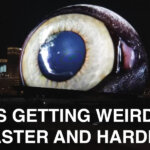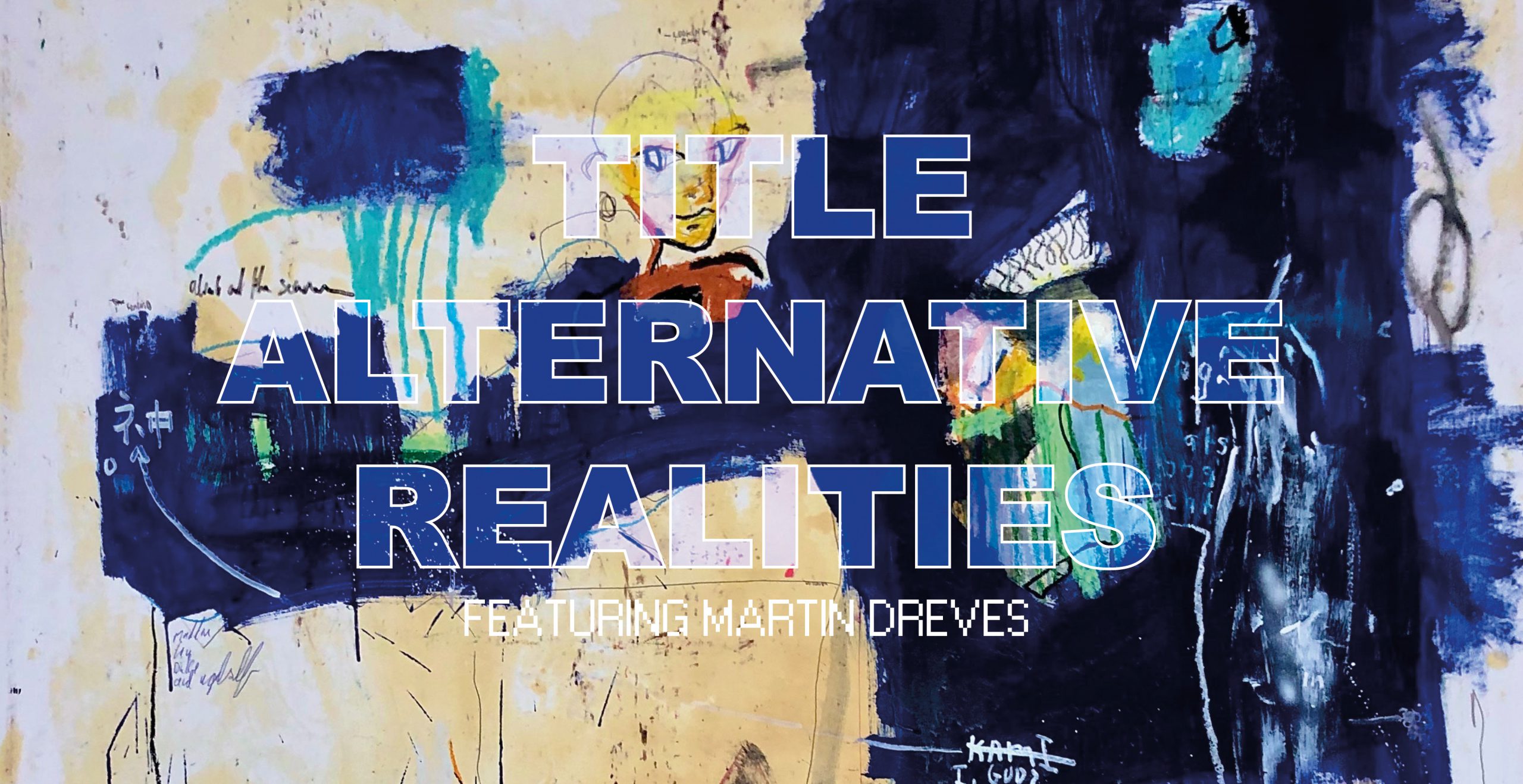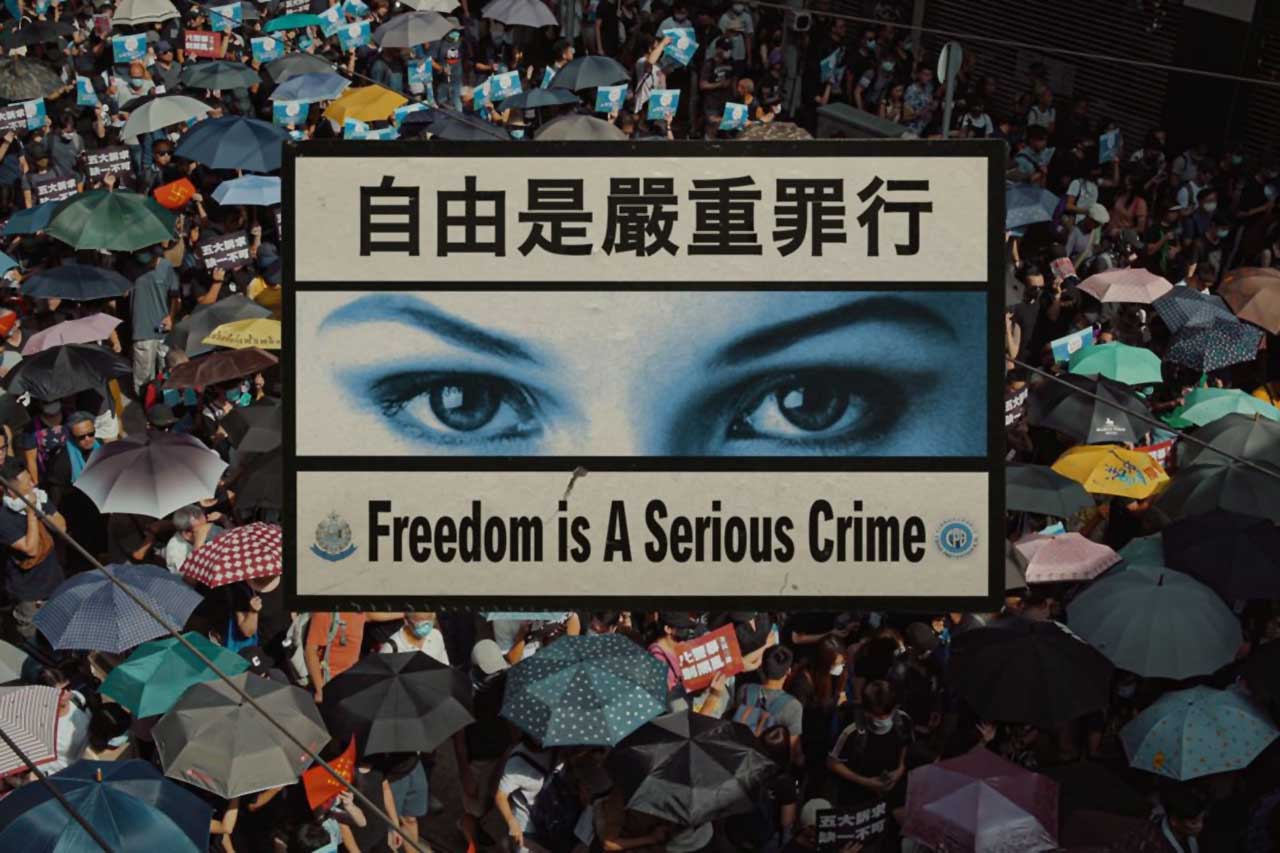In 2012, Tupac Shakur was brought back to life at Coachella: Snoop Dog and Dr. Dre put on stage a hologram of Shakur. More than a decade has passed and digital tools have been used for all kinds of nefarious purposes, from forging a new afterlife and duplicating the idea of ourselves in a different reality to brands trying to capitalise on Internet subcultures and their very own genius—I mean, think of AI Balenciaga and the latter commercial version of AI Gucci.
These events that seem unreal and out of control keep happening. “We live in a time of great ambiguity and confusion,” reads Adam Curtis’ synthetic voice in The Future Ahead us Will Be Weird AF (The Ultimate AI CoreCore Experience) Part One + Plus Two, a short film by Silvia dal Dosso shown in the exhibition you’re doing amazing sweetie, part of this year’s Transmediale Festival in Berlin.
With this video, the multidisciplinary creative and researcher dives into the ways that digital technologies inform our culture, and forecasts an uncanny, unpredictable future in which the real and unreal converge, assuring that only one thing is certain: “Fakes are among us, and the future ahead will be weird as fuck”. Hyperrealism, meta worlds, avatars, deepfakes—and of course, a lot of paranoia—welcome to the post-post-post-truth AI world.
In conversation with Dal Dosso, co-founder of the transmedia art collective Clusterduck—also focused on exploring the potential of memetic symbology on the Internet—we discussed her vision of the future as per these technologies, the dangers of hyperrealism and the ways it can influence our public opinion.
(The artist curses in certain moments to corroborate that it was a human who spoke and not a machine. No AI has been involved in the production of this interview. New level of paranoia?)
Hey Silvia, thank you for taking the time for this interview! I’m excited to talk about The Future Ahead Will Be Weird AF (The Ultimate AI CoreCore Experience) Part One + Plus Two. After watching it, I had to think about the eerie way our future will be shaped by digital technologies, starting with the normalisation of digital humans and deepfakes. How weird do you think is our future going to get as per these technologies?
I work for a bunch of agencies here in Italy, and at the moment what I know is that every brand is trying to build its MetaHuman persona, a sort of interactive Lil Miquela, so they can directly connect with their clients. In the meanwhile, Unreal Engine is developing an integration of MetaHuman which will involve Gen AI and deepfakes. In, let’s say one year, every studio in town will basically reach the mastery of rendering perfectly looking humans that can be animated as if they were 3D puppets.
Last year was about cursed AI images and fun. The next year is going to be weird. The time after that is going to be very, very weird in a not funny way. Some say that this could be the last human election; some say that the internet is dead and that all the main players online are bots. Working in advertising to earn my bread, and studying new technologies since I was little, I kinda know the drill—or pretend that I do, so I spend a lot of my time trying to protect the people I know from the constant traps that they could find in their way. I try to protect my grandma from a fishing call from an energy provider, my friend Gine from fake Nigerian crypto influencers and NFT marketers.
In a few years, I’ll probably find myself trying to save my little nephew from an avatar version of herself attempting to convince her that this is her from the future and that she should put all her money in some fake startup digital wallet that produces synthetic cow meat to save Germans from starvation, because of the new glacial era brought by the tomographic inversion of the El Nino. We need to stay awake in a broader sense, us humans, we need to learn to help each other again.
Complexity is a bitch.
And how is that future starting to brew now?
I just came back from a therapy session where I’m trying to learn how to focus on the real and present time, as I haven’t been on this planet for too long. My therapist taught me a very easy exercise, which consists of looking around the space that surrounds me, noticing five objects in the room, focusing on them, then noticing five sounds in the air, and listening to them. In the past few years, I’ve been involved so much in the internet scape and the online world that I was honestly losing my mind.
I’m talking about myself but where I live, in Milan, I get the impression that almost everyone is similarly losing their mind. You see drivers plugged into their Instagram feed and you know that when they get home they’ll be spiraling for at least an hour while they’re eating dinner alone or with someone else who has no idea about what’s happening in their present either, as they’ve been spiraling since the lockdown hit northern Italy.
Billions of people online are somehow caught in a sort of LARP, they are looking for the truth but there’s nothing of it in it. They trade every day their utmost priorities such as breathing, eating, or surviving for some quick endorphins or just a bit more of virtual success. Day by day, year by year, we became this, not just for a few seconds more, but for an undefined eternity. This is how our brain is now coded, it’s the mental state in which we’re making choices and organising society together.
Tools have replaced basic vital purposes. As my therapist said to help me escape all of this: success is a tool, and living in a world where people are happy to be in my company is a purpose.
The future seems every time more uncertain. Every time seemingly more disconnected from what’s ‘real’, with tools blurring the line between real and unreal. Synthetic and organic.
Are you excited about the future, or would you rather press the ‘pause’ button?
I tend to push on the ‘adaptation’ button lately. I know there is no ‘pause’ button. Not in this decade. Some very tragic things may and will happen, but until then, presidents will continue to invite CEOs to have tea, while endorsing auto regulations that allow them to choose ethical committees internally—at least this is what’s happening in the US.
The ‘adaptation’ button works as such: you can use whatever technology you like, given that you must learn everything you can about it. Finding ways to use unreal things for your own purpose is allowed since we’re all here for the same thing. Then, you can create a network of people that share similar ideas and who can teach others how to adapt, and more importantly, who can help each other to stay away from paranoia.
Are you paranoid sometimes? Last week I had an IRL chat with my ex, whom I hadn’t seen in like four years, the most stable person I know, and yet he’s become paranoid AF. Boomers are a lil scared by post-truth and eat Xanax, as they grew up in a time bonded to the illusion that what was said on TV was real. Anyone who’s under 50 now has never had the chance of living that illusion. Our main concern is mental health and surviving in a world full of people who want to fuck us over, from our employer to the smiley faces on our shoes, while those who are excited about the future as it’s expected to be, are either dissociated or simply very ignorant.

Like most social media users, I get lost watching memes. What are your thoughts on hyperrealism and our meme culture?
Everything that’s so hyper and becomes absurd is very much welcome among memers, and I find this a very good way to protect ourselves from the unreal that pretends to be real in order to fuck your brain. When it comes to the meme culture, I’m an optimist. Over the past years, we’ve seen attempts to hijack meme culture, from Trump’s spin doctors to literally every brand and company on the market right now, but an organic laugh is difficult to fake. The moment a meme lord is taken by an advertising agency, the legit good laugh is already dead. I still believe in the power of the lulz for the sake of it. There’s a funny example in The Future Ahead Will Be Weird AF (The Ultimate AI CoreCore Experience) Part One, of how the Gucci version of AI Balenciaga turns into a commercial fail.
Are you of the opinion that hyperrealism poses a danger for they can manipulate public opinion? In the video, you talk about hyperrealism and the art of politics. What’s an instance when hyperrealism heavily influenced the perception of the public, for good or bad?
9/11 was an inside job, towers were CGI. Lol, no, I’m joking (am I?).
There have been some viral cases, like that video of Zelenskiy asking Ukrainian troops to surrender, but honestly, right now Ukrainians who are still in Ukraine aren’t naive at all. Countries under Russian influence have experienced what’s called the все неоднозначно (‘everything is ambiguous’) strategy. The post-truth regime there came into action way before the internet and way before Putin himself. At the moment, everything on the internet is traceable and debunkable, and who’s falling in the nets of hyperrealism is someone who doesn’t bother to care or is a boomer. In a few years what will naturally happen, I think, is that we’ll assume that all videos can be fake, as we’re used to doing with news in newspapers, since Indimedia kicked off—and probably way before that.
Can you tell us more about the nature of this video and the use of Adam Curtis’s AI-generated voice based on his video Hypernormalisation. Why this choice?
There’s a scene in Hypernormalisation where Adam Curtis is talking about Patty Smith and the way she watches the decaying city with cool detachment. A bit after 1975, New York City bankers forced their control over the municipality, bringing order to the streets while protecting their loans by doing so. Curtis recognised this as the rise of a new kind of politics, a way of power in which citizens and democracies are no longer involved. He observes how this has direct consequences on the artists and activists of the time: “Patty Smith described the mood of disillusion that had come over them”––the real Adam Curtis voice-over tells––as things were happening, “they didn’t try to change it. They just experienced it.”
I find this particular moment in the movie a perfect description of our CoreCore era. As we are scrolling through an infinite thread of funny or catastrophic images, depressing or amusing videos, we live under the impression that everything will fall and that we’ll fall with it. It’s an intense sensation of pain and helplessness. But we feel in power again because of this, because we’re feeling something real—at least. And even then, we have the impression that something is still somehow possible, through exchanging our individual feelings and sharing them with online and IRL discussions.
This is what really The Future Ahead Will Be Weird AF (The Ultimate AI CoreCore Experience) Part One + Plus Two is about. Besides being a fan of Adam Curtis’ work, in this fan fiction era, where everyone is ruminating about iconic cultural material, creating datasets or meme pages, I would rather stick to what I love.
What are your thoughts on the glorification and replication of celebrities as per AI? Do you think we’ll move on from our celeb obsession as new tools to fulfil our fantasies become more widespread?
I think that it has become harder and harder to create real iconic celebrities. As the media world is scattered into filter bubbles and algorithms feed us with our favourite news, aesthetics, and personalities, no news, culture or celeb could reach the state of fame of Olympus of the Moon Landing, Jazz, Michael Jackson, Madonna, or De Niro.
As true iconic celebs are literally dying, their franchises will probably try to use synthetic personalities and find the market for it—probably among millennials, as we tend to be very nostalgic. Zs would be less needy of icons in general. Alpha at the moment collects SCP creatures and doesn’t give a single fuck about celebs. By the way, coming back to Millennials, as I ironically suggest in The Future Ahead Will Be Weird AF (The Ultimate AI CoreCore Experience) Part One, speaking through very famous celebrities isn’t that bad of a strategy.
In the video, you say—or Adam Curtis—that in the end we all want to be celebrities. What do you mean by this?
I’m referring to the chronic state to which the platforms run by Mark Zuckerberg have led us.
What’s the current status of the Clusterduck collective, what are you working on or aiming for? Any exciting projects coming up for you in the (near) future that we should be looking forward to?
Clusterduck is flying. Since 2017 Clusterduck counts with 5 active co-funders, Tommaso Cappelletti, Francesca Del Bono, Arianna Magrini, Noel Nicolaus, and myself, along many other cute and clever collaborators. Last month, we had an opening at KW Institute for Contemporary Art, where we had the chance to show The Detective Wall, a six-year-long project that collectively mapped the memesphere, as part of a larger transmedia work called Meme Manifesto, exhibited in the Poetics of Encryption, curated by Nadim Samman. The huge, crazy meme wall we built is still there—if you happen to be in Berlin.
Last week, we presented a new work at Gallerie d’Italia in Napoli. Deep Fried Feels is inspired by fried memes, data loss, and how our need to communicate with one another is becoming more complex by the growing number of technological possibilities to stay connected, giving us the impression that our feelings are getting lost in translation. You can find more about this, what’s next to come, and more about our contributors on our brand-new website!
*All media courtesy of the artist




























